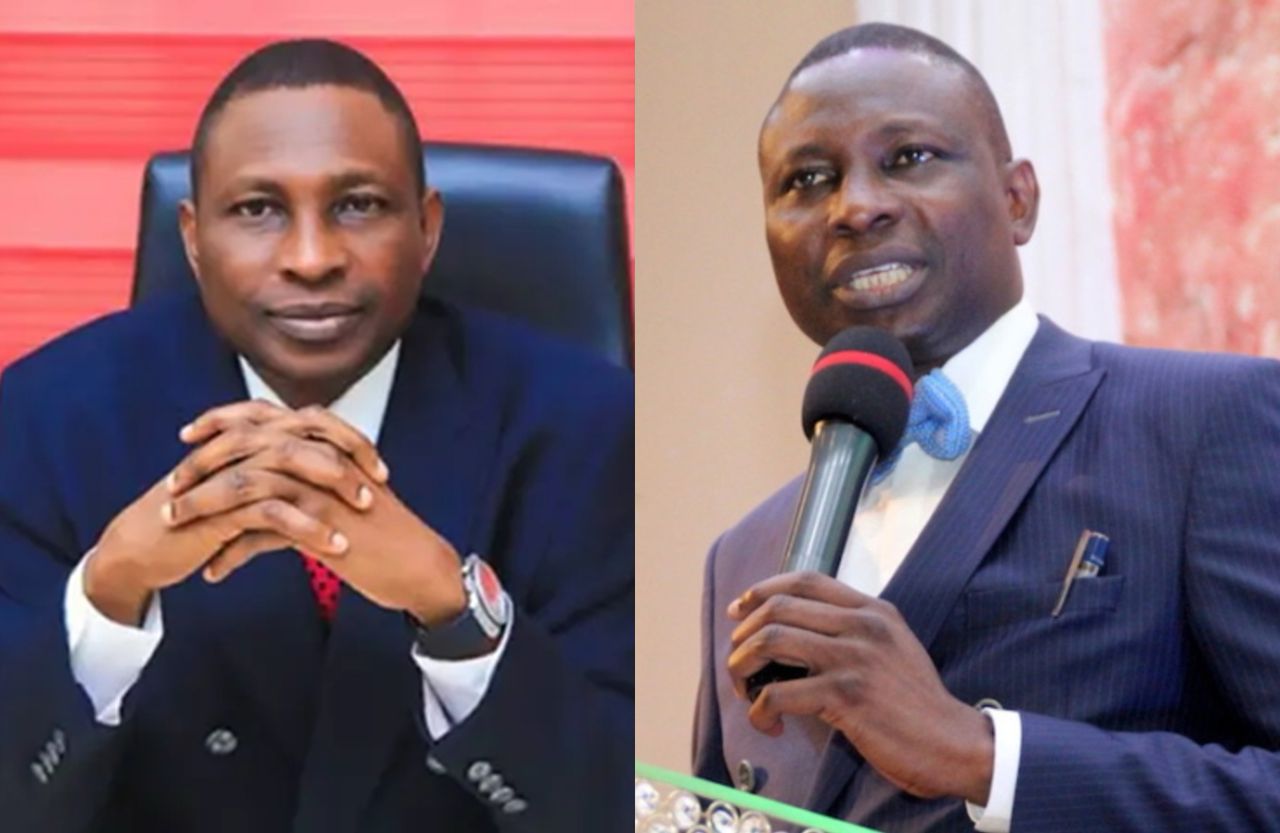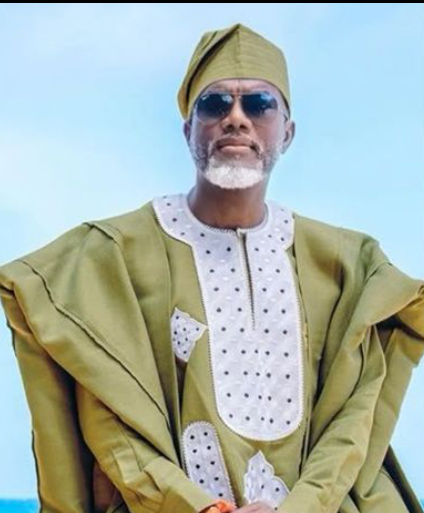
“Nigeria is in Trouble”: EFCC Chairman Raises Alarm Over Youths Laundering Money for Politicians Instead of Working

The Chairman of the Economic and Financial Crimes Commission (EFCC), Ola Olukoyede, has sparked a nationwide debate with a fiery and sobering statement that puts the spotlight on a generation he believes is losing its moral compass. In a blunt, no-holds-barred assessment of the state of the nation’s youth, Olukoyede declared: “We have a crisis on our hands. Young men don't believe in hard work anymore, they launder money for politicians. Are these the people we want to hand Nigeria to?” His words have since reverberated across social media, political circles, and civil society organizations, igniting conversations that go far beyond economic crime and delve deep into the soul of a country wrestling with generational decay, political corruption, and moral compromise.
Olukoyede’s remarks come at a time when the EFCC has intensified its crackdown on internet fraudsters and financial criminals, many of whom are young Nigerians barely out of university—or even secondary school. However, what makes his latest comments particularly explosive is the explicit link he draws between these young fraudsters and Nigeria’s political elite. By stating that many of them are laundering money on behalf of politicians, he not only calls out the enablers of financial crime but also draws attention to a dangerous convergence between youth ambition and elite impunity. The young are supposed to be the hope of any nation, but according to Olukoyede, that hope is now entangled in the very corruption they should be fighting against.
For years, the term "Yahoo boys" has been associated with cyber fraud in Nigeria, often treated by some as a dark cultural phenomenon that exists in parallel with the real economy. But Olukoyede’s warning adds a troubling layer to this reality. He is not talking about online scams targeting foreigners anymore; he is talking about young people who have become the financial engineers of political corruption, laundering looted public funds, manipulating accounts, and facilitating the continuous siphoning of Nigeria’s resources under the protection of powerful godfathers. It is no longer just a moral failing—it is a systemic collapse.
The Nigerian youth, often described as resilient and innovative, are now facing accusations of being active collaborators in the rot that has plagued the country for decades. And the irony is painful: a generation once heralded as the leaders of tomorrow may now be grooming themselves for leadership by mastering the art of financial sleaze today. This alarming trend suggests a shift not just in economic values but in national identity itself. Hard work, education, perseverance—once the pillars of upward mobility—appear to be giving way to shortcut culture, get-rich-quick schemes, and the normalization of fraud.
The EFCC Chairman’s comment is not simply an indictment of young people. It is a loud, national siren warning of a societal breakdown where criminality is no longer in the shadows but right at the center of Nigeria’s future. His words beg uncomfortable questions: Who are the role models for young Nigerians today? Are the real hustlers those in tech, agriculture, and creative industries, or those who hang around politicians, run errands, and handle dirty money? Has the definition of success been hijacked by ostentation, social media validation, and political connections rather than integrity and merit?
Perhaps even more worrying is the implication that Nigeria’s political machinery is not just tolerating this trend—it is thriving on it. Politicians, some of whom have spent decades in power without tangible achievements, are allegedly enlisting young people as pawns in an endless game of looting and laundering. With elections always around the corner and vast campaign war chests needing movement, it is not difficult to imagine how this unholy alliance between corrupt elites and desperate youth may have flourished. What Olukoyede has done is rip the veil off a truth many Nigerians already suspected but hesitated to articulate publicly.
While Olukoyede's words might sting, they serve as a crucial wake-up call. If the current trajectory continues, the consequences could be dire. What happens when this class of politically-backed, fraud-savvy youth ascend to positions of power? What kind of leadership will they offer? If the values being cultivated today are based on fraud, sycophancy, and manipulation, then tomorrow’s Nigeria may be led by those even more ruthless and disconnected from the needs of the average citizen than the current crop of leaders.
Already, the symptoms of this rot are evident. Communities where flamboyance and unexplained wealth are glorified over academic or professional achievement. Families where parents encourage or turn a blind eye to their children's dubious income sources. Social spaces where the fastest route to respect is the ability to spend, not the integrity of your hustle. Even some religious institutions have been accused of looking the other way, offering front-row seats and leadership roles to donors whose sources of wealth are questionable.
The reaction to Olukoyede’s statement has been mixed. Some applauded his courage in telling the hard truth, noting that the only way to confront this crisis is through brutal honesty. Others, particularly among the youth demographic, bristled at what they perceived as unfair generalization. They argue that not all young people are involved in crime and that thousands across the country are grinding daily with little to no support from the government. While both perspectives have merit, the fundamental issue remains: when leadership fails to create legitimate opportunities, corruption becomes an alternative economy—and the youth are quick to adapt.
But there is still a window of hope. If Olukoyede’s words catalyze national reflection, policy shifts, and honest dialogue, then perhaps Nigeria can begin to change course. It must start with a renewed commitment to education, job creation, and an enabling environment that rewards diligence over deceit. The glorification of ill-gotten wealth must end—both in the media and in everyday life. Political actors must be held accountable not just for stealing but for weaponizing the youth as tools of that theft. And institutions like the EFCC must be empowered and insulated from political interference so they can enforce justice without fear or favor.
Nigeria is not beyond repair, but it is clearly at a crossroads. The kind of future it builds depends heavily on the values it instills today. Olukoyede’s warning must not be dismissed as just another angry outburst from a frustrated official—it should be printed in bold and hung in every school, ministry, campaign office, and youth center. The country must choose between raising a generation of nation-builders or breeding a class of mercenaries for political cartels.
The question he asked lingers ominously: are these really the people we want to hand Nigeria to? Unless the answer becomes a resounding no, the future might be even darker than the present.


